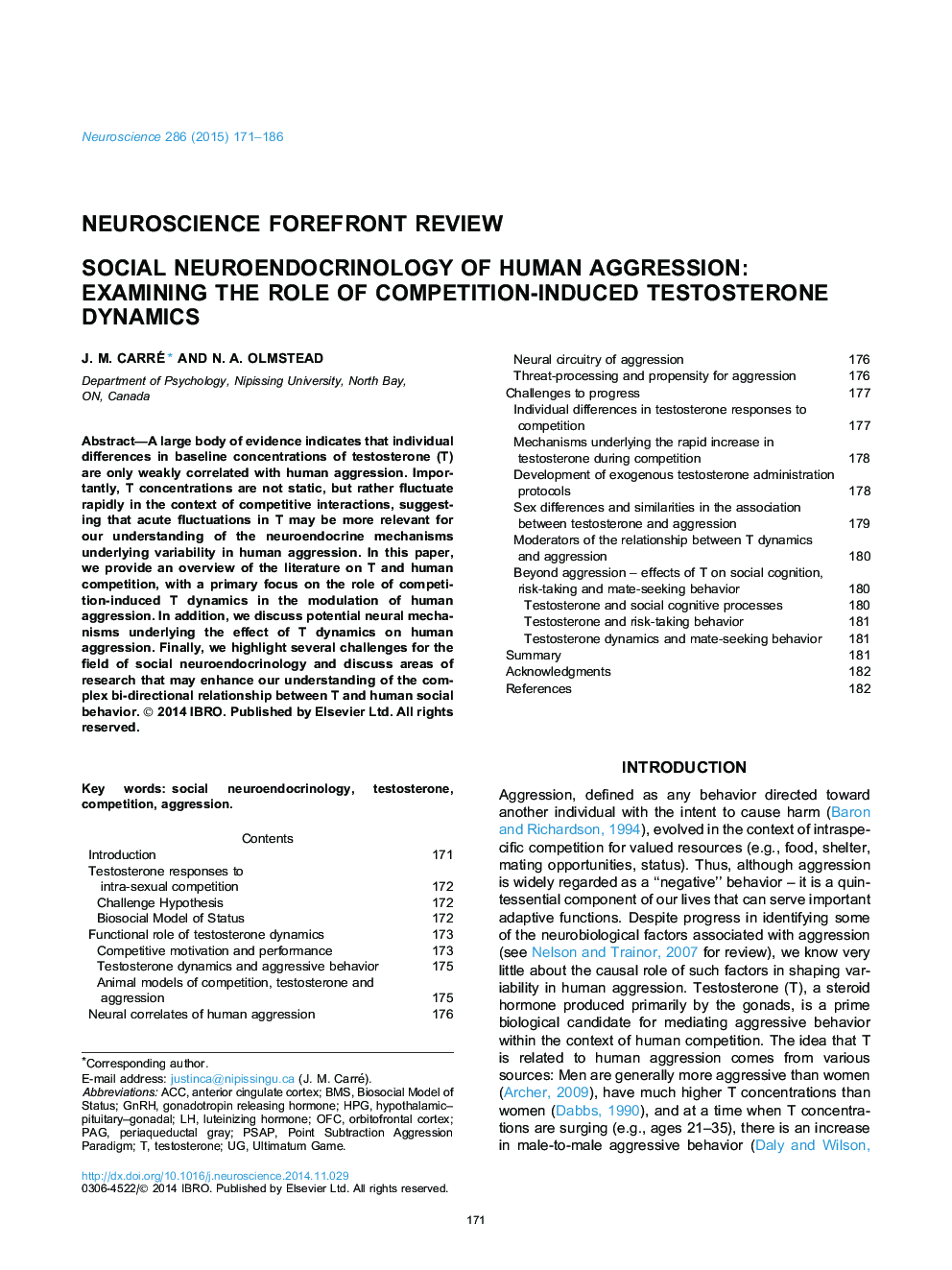| Article ID | Journal | Published Year | Pages | File Type |
|---|---|---|---|---|
| 6273061 | Neuroscience | 2015 | 16 Pages |
â¢T concentrations change rapidly during competition.â¢Individual differences in T reactivity to competition predict future competitive motivation and aggressive behavior.â¢Acutely elevated T enhances threat-related amygdala function in men and women.
A large body of evidence indicates that individual differences in baseline concentrations of testosterone (T) are only weakly correlated with human aggression. Importantly, T concentrations are not static, but rather fluctuate rapidly in the context of competitive interactions, suggesting that acute fluctuations in T may be more relevant for our understanding of the neuroendocrine mechanisms underlying variability in human aggression. In this paper, we provide an overview of the literature on T and human competition, with a primary focus on the role of competition-induced T dynamics in the modulation of human aggression. In addition, we discuss potential neural mechanisms underlying the effect of T dynamics on human aggression. Finally, we highlight several challenges for the field of social neuroendocrinology and discuss areas of research that may enhance our understanding of the complex bi-directional relationship between T and human social behavior.
